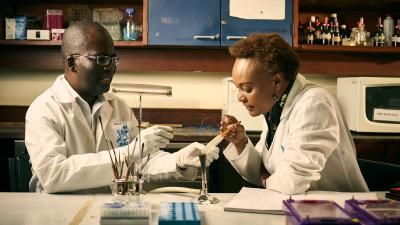Muntasir has a background in Engineering and Materials Science, with extensive experience leading R&D and product development across hardware, software, and semiconductors.
This page was published on

Lloyd’s Register Foundation recently launched its 2024–2029 strategy , reaffirming our commitment to addressing the most pressing global safety challenges through collective action and innovation. As part of this vision, we are introducing two new Networking Grants to help address critical global engineering and scientific issues that align with our mission to engineer a safer world.
These grants are intended to convene interdisciplinary experts and should be led by at least one from a High-Income Country (HIC) and one from a Lower-Middle-Income Country (LMIC), fostering collaboration across diverse sectors such as engineering, science, economics, business, and policy. The focus will be on key priority areas defined in our strategy: decarbonisation, digital transformation in maritime, and sustainability. Each Networking Grant will fund the creation of expert networks, a series of targeted workshops, and a large-scale dissemination conference to identify research gaps, promote partnerships, and deliver actionable roadmaps for impactful solutions.
This initiative is rooted in our ambition to enhance global safety and engineering excellence. Developed collaboratively with Lloyd’s Register Foundation and Lloyd’s Register Group, the Networking Grants align with shared priorities supporting the safe decarbonisation of maritime industries and a safe digital maritime transformation.
The grants directly contribute to our strategic objectives of creating safer systems, amplifying our global influence, and delivering scalable, sustainable solutions to pressing challenges. They also build upon ongoing work in areas such as sustainability and digital maritime transformation, reinforcing our role as a trusted leader in engineering safety and innovation.
In line with our Grant Eligibility and Grant Funding Guidelines, this call is open exclusively to academic institutions, including universities and research centres within universities. Eligible institutions must be actively engaged in education, research, or public engagement activities that align with Lloyd’s Register Foundation’s mission to engineer a safer world.
Collaborations with industry, policy, and non-academic partners are encouraged; however, the lead applicant must be an academic institution.
In line with government guidelines, Lloyd’s Register Foundation adheres to the following principles when granting funds to non-charitable organisations:
Your Proposal
We are seeking ambitious and innovative proposals that aim to:
If you are an academic organisation who is interested in this call, but haven't yet identified a partner to submit a joint proposal, join our LinkedIn 'matchmaker' group.
Themes and Topics
Proposals should address one or more of the following strategic challenges:
Proposals should demonstrate how their scope aligns with our mission to engineer a safer world and the potential for generating long-term impact through interdisciplinary collaboration.
Out of Scope
Proposals will not be considered if they:
Funding Support
Opportunities for Co-hosting Events
Access to Networks and Expertise
Support for Dissemination and Publicity
Collaboration with Lloyd’s Register Foundation
We have a three-stage application process for the Networking Grant. Applications will be managed through our Flexigrant system.
To begin your application, you will need to create an account on Flexigrant via the Lloyd’s Register Foundation portal homepage. Once registered, you will receive an email to verify your account. Please ensure all organisational and contact details are accurate when creating your account.
Applicants are required to submit a concise proposal summary that includes the following:
We aim to make this stage quick and straightforward to accommodate applicants’ time. After submitting your proposal summary, you will be notified whether your application will progress to the full proposal stage.
Webinar for Applicants – 4 March 2025
We encourage all potential applicants to attend an informational webinar on 4 March 2025, where we will provide an overview of the call, eligibility criteria, and application process, followed by a Q&A session. Details on how to register will be available on our website.
Deadline for Proposal Summaries (EOI):
To ensure timely consideration, please submit your proposal summary by 14 March 2025, 12:00 GMT (midday)
Successful applicants from Stage 2 will be invited to submit a detailed proposal through the Flexigrant portal. This stage will involve providing a more comprehensive project plan, including:
Invitations to submit full proposals will be issued by 4 April 2025.
The deadline to submit full proposals is 9 May 2025, 12:00 GMT (midday).
Important Notes:
We need to make sure that your proposals meet certain quality standards, are sufficiently evidenced, are value for money, and have a good chance of success.
The Foundation team will review all the proposals that have passed the review stage and decide on the which proposals we will take forward to contract.
We will contact you informing you of our final decision.